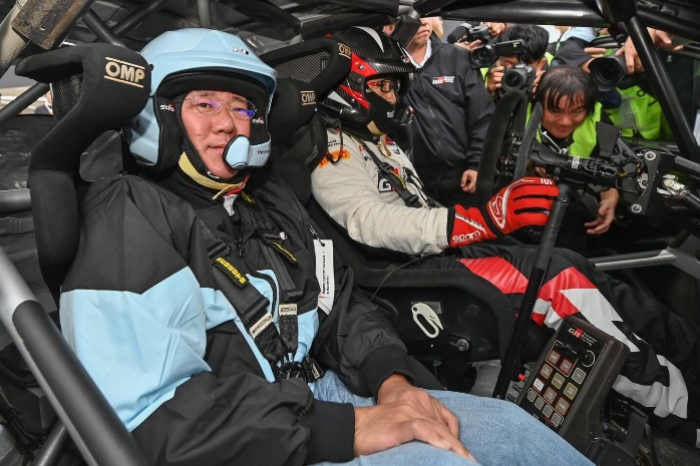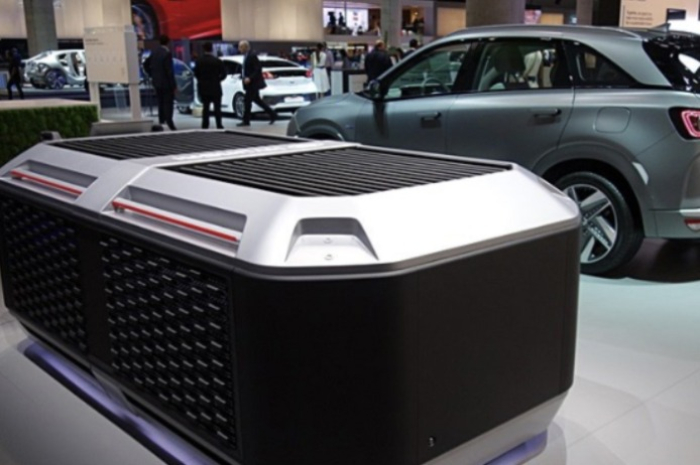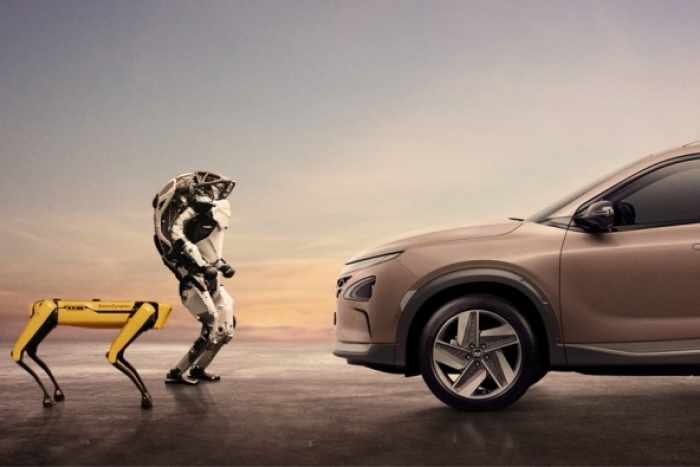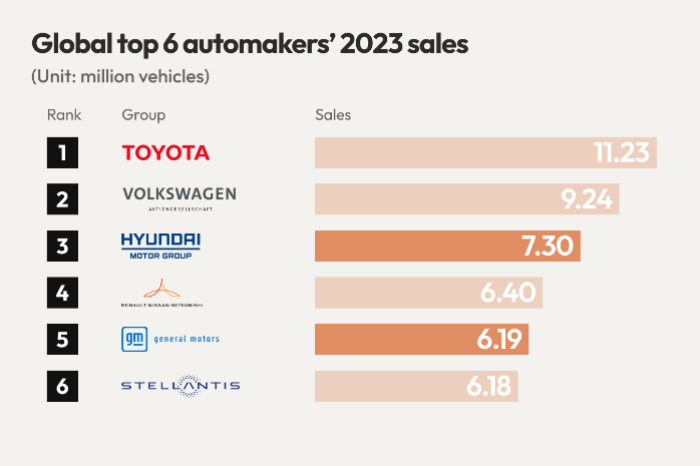Toyota, Hyundai agree to deepen ties in hydrogen, robotics
Toyota, Hyundai agree to deepen ties in hydrogen, robotics
Press Release, Oct 28, 2024
Toyota Motor Corp. and Hyundai Motor Group agreed to deepen their partnership in developing future mobility technology, especially in hydrogen fuel-cell vehicle and humanoid robot development, during the two auto giant chiefs’ meeting in South Korea on Sunday.
The meeting was held after Akio Toyoda, chairman of Japan’s top automaker Toyota Motor, flew to Seoul over the weekend at the invitation of Hyundai Motor Group Executive Chair Chung Euisun.
Their meeting in Seoul was heralded by The Korea Economic Daily’s exclusive report in September.
“Together, Toyota and Hyundai are joining hands to create a better society and shape the future of mobility,” Toyoda said after his intense show runs of Toyota Motor’s Yaris WRC at the inaugural ‘Hyundai N x TOYOTA GAZOO Racing Festival’ at Yongin Speedway on Sunday.
“We’ll continue to push forward in motorsport alongside Toyota so that more people can enjoy the thrill of driving,” said Chung, who joined Toyoda at the racing performance.

Sources expect the collaboration between the world’s No. 1 and No. 3 car sellers to move beyond motorsport toward hydrogen fuel-cell vehicle and robotics development, which requires enormous cost.
Their alliance is expected to create huge synergy considering that Toyota and Hyundai retained their No. 1 and No. 3 position, respectively, in the global auto market in the first half of this year, with global car shipments of 5.16 million units and 3.62 million units.
HYDROGEN CAR ECOSYSTEM
Hyundai Motor and Toyota Motor are the world’s top two hydrogen fuel-cell vehicle developers.

They are also key members of the Hydrogen Council, founded by 13 global companies, including Hyundai and Toyota, in 2017 to build a global hydrogen ecosystem. The council now boasts 140 members.
Building a hydrogen ecosystem that encompasses production, transportation, storage and charging system requires such a huge investment that even a large corporation is loathe to lead a new initiative alone.
Amid a challenging market environment, global hydrogen car sales in the first six months of this year shrank 34.1% on-year to 5,621 units.
But Hyundai Motor and Toyota Motor remain committed to the development of hydrogen fuel-cell cars and on Sunday they unveiled a slew of new-concept hydrogen cars.
HUMANOID ROBOTS IN CAR PRODUCTION LINES
The two auto groups’ robotics alliance has already kicked off after Hyundai’s US robotics unit Boston Dynamics Inc. and the Toyota Research Institute (TRI) earlier this month agreed to join forces to speed up the development of “general-purpose humanoid robots.”
With two of the world’s leaders in AI and robotics, Hyundai and Toyota will deploy their AI-powered humanoid robots at their car plants to cut production costs and lower defect rates.

Hyundai Motor plans to deploy Boston Dynamics’ humanoid robots in the next few years.
Following the latest robotics partnership, Toyota is also expected to employ Boston Dynamics’ humanoid robots to manufacture its cars.
The deployment of robots to auto plants is one of the latest trends in the global auto industry. It aims to automate more assembly line processes to cut labor costs and strengthen worker safety.
In June, Tesla Inc. deployed two Optimus robots, the company’s general-purpose humanoid robot, to its auto factory to perform some simple tasks.
In August, BMW Group piloted its humanoid robot Figure 02 at its US factory in South Carolina.
Hyundai Motor and Toyota Motor are also expected to implement various robotics technologies in their new cars, industry observers said.
Hyundai Motor Group Chairman Chung Euisun said in 2021 that robotics will account for 20% of its future business, with automobiles taking up half of its sales, followed by urban air mobility at 30%.

SAMSUNG EYES AUTO ELECTRONICS COLLABORATION
Samsung Electronics Co.‘s Chairman Jay Y. Lee also attended the Hyundai-Toyota car racing event on Sunday.
Considering that Samsung controls various car electronics and parts businesses such as chips by Samsung Electronics, digital cockpits by Harman International, auto displays by Samsung Display Co. and EV batteries by Samsung SDI Co., Lee was said to have discussed future partnership opportunities with Chung and Toyoda at the event.
The racing event venue is owned and managed by Samsung Group’s de facto holding company Samsung C&T Corp.





